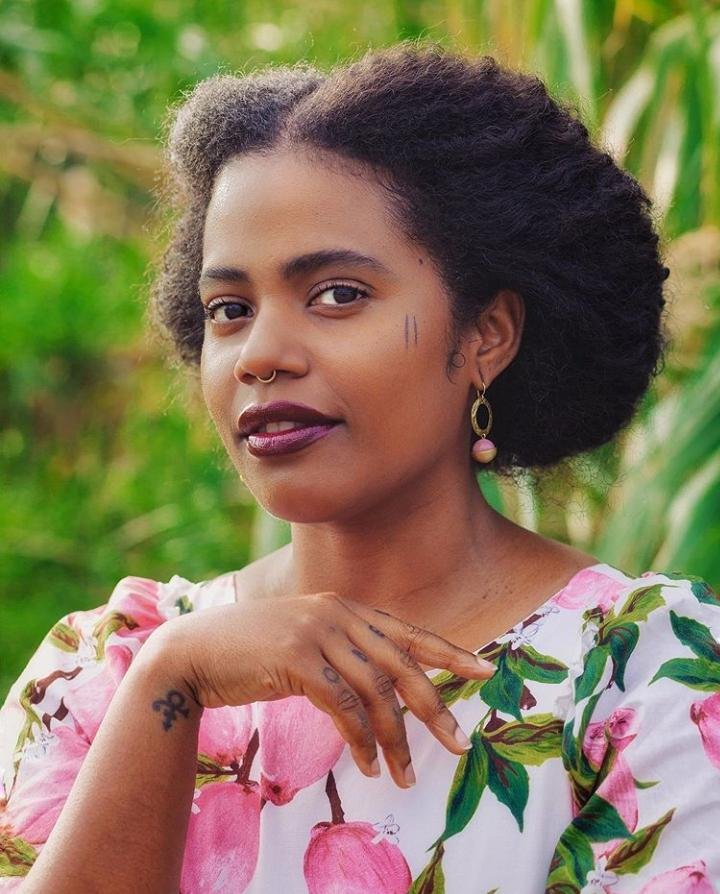
Honestly, Yshwa, I just want to rest. Let me find a place where even if I’m alone, I can sit on my veranda and look at a mango tree and we can just talk. You will be the words in my mouth and the ones that fall from my fingers; you will be the one to whom I direct my longing.
This is a plea from a woman plagued with the constant meddling of the gods in her life and the relationship with people she truly cares about. It comes after Umuahia, Asugara, Ewan, Hassan, Itohan’s bother and all the other men she has slept with.
One laudable thing about Freshwater is the fact that Emezi leaves it open-ended, not in a vague or offhand manner, though. We are left to our own mind; if you think Ada is schizophrenic or suffering from dissociative personality disorder, or believe she has gods living inside her who are responsible for everything she does, you are right. And if you believe in the spirituality and metaphysics of ogbanjes, you are not wrong. Because as you find out in the book, to have gods living inside you is to have power and madness, as gods are not controlled by human laws and principles. In the first paragraph of chapter two, the gods consider themselves, a litany of madness.
Emezi’s use of the first person point of view makes it personal, even to the reader. It plunges one into the mind of Ada, and of course, the spirits living inside her. Through Ada, we see how the gods consider humans as fickle and predictable.
Regardless of the fragility of the story, Emezi still finds ways to add humour and drama. Having a god say words like sha, abi, wallahi, is not something you come by every day.
However, some concepts like the gate and the brother-sister threw and left one adrift for a while. The narration from the collective point of view of the gods in Ada reads indistinct, making the reader wonder if Ada is part of the We or if the We is merely borrowing her voice.
The allusion to the marble room in her mind reveals the relationship between madness and power. Also, when she started cutting herself to feed the gods, it made the reader wonder again if she was mentally ill as she exhibited defence mechanisms like denial of reality, repression etc. or if in actuality, she had gods living in her.
Asughara, the daring, impulsive, pleasure seeking and sadistic god in Ada readily brings to mind the image of the human Id. There is a part of us that wants instant gratification and is always seeking pleasure, the part of us that wants to just do, damn the consequences. Depending on how you choose to look at it, every normal human being has an Asughara.
Ada is the ego, the reality. The one we see and hold responsible, the one of the gods who sits in halls to take exams, the one with the human mother, Saachi. She is also the super ego, the one with conscience, who thinks before breaking up with her lovers. The one who wants to talk to Yshua because he is the God she always prayed to at Mass. The one who thinks sleeping with your friend’s brother while his parents are in the hallway is not right, the one who has feelings.
In Freshwater, you will find sentences that tell beautiful stories themselves in the most subtle and seamless manner. You will also find beautiful chapter previews that introduce something juicy for every new chapter, relatable dialogues and poetry.
Emezi does a perfect job developing the ogbanje characters and their thought processes. Freshwater questions what you think you believe and what your mind chooses to believe.
Book title: Freshwater
Author: Akwaeke Emezi
Publisher: Kachifo Limited
Page Number: 252
The reviewer, Deborah Oluniran has her bio in the members’ profile section.





Wow! The review in itself is enthralling. Woven in subtle psychological dissection of truth and, say metaphysics, it throws one off the plains of what is real, and back again and one cannot wait to have a hold on Emezi’s freshwater.